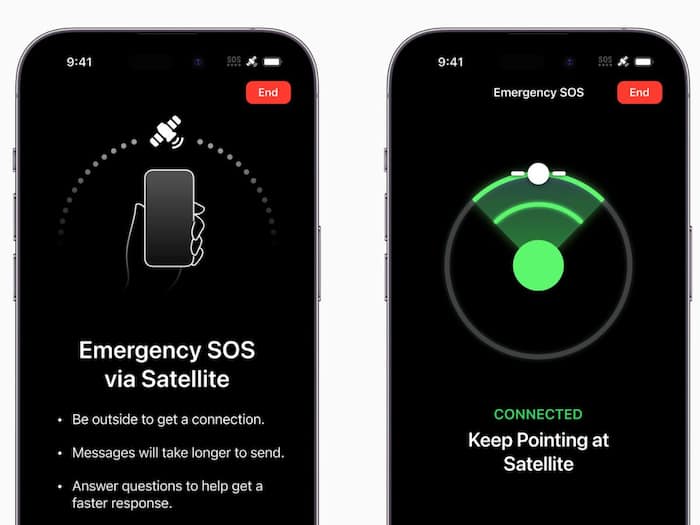
Written By Divya
Published By: Divya | Published: Nov 10, 2025, 06:08 PM (IST)

Also Read: Face ID Keeps Failing? This iPhone Trick Can Fix It
Apple first introduced the satellite-based emergency call and messages options back with the launch of the iPhone 14 series, and it actually became one of the highlighted features in the past few years. Since then, all the iPhones have supported the same Satellite connectivity features. Now, it seems like Apple is taking a step further to boost the core idea of Satellite communications via iPhone. Also Read: iPhone 17 Pro Max Gets A Major Price Cut Without Trade-In; Apple Store Or Vijay Sales - Where To Buy?
As per Bloomberg’s newsletter by Mark Gurman, the iPhone maker is preparing to add new features to the Satellite connectivity for your iPhone. Here’s what you may get soon. Also Read: iPhone Fold And iPhone 18 Tipped To Get Major Display Upgrade: What To Expect
The report suggests that Apple might be developing satellite-powered maps for iPhones. How will it benefit you? Once released, then you could even use the Maps even without the need for internet. Just satellite connectivity is all it will take. Apart from this, Apple is also working on making the communication even better while sharing photos via the Messages app. So far, iPhone users can send basic text-based messages via Satellite Connectivity.
Not only these, Apple is also working on a dedicated satellite framework for third-party app support. This will allow developers to add satellite connectivity support to their respective apps. However, it is still under development.
Gurman’s report also mentions that Apple is planning to improve how satellite communication works in tricky situations. For example, users might soon be able to connect even when they’re indoors, in a car, or with their phone kept in a pocket. There’s also talk about Apple exploring satellite over 5G connectivity. This could come with the future iPhone 18 lineup, enabling better coverage and performance through 5G Non-Terrestrial Network (NTN) support. In simple terms, that means combining regular 5G and satellite networks to stay connected even in remote or high-altitude regions.
All of these features sound exciting, but it’s worth noting that they’re still in the experimental phase, and we need to wait for some official announcements in the future.